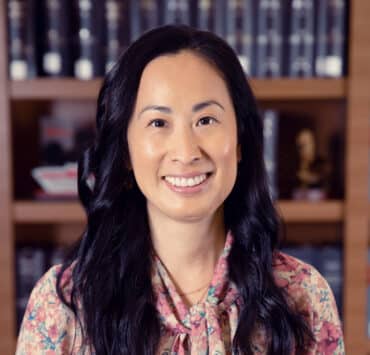|
Getting your Trinity Audio player ready...
|
Had Caeden Curtis Drayton chosen a more direct path to the law, his legal career might have moved faster in his twenties and early thirties. But, over the long run, the senior intellectual property counsel at Stanley Black & Decker Inc. says his educational and early career choices make him a more valued member of corporate leadership.
On any given day, Drayton is confronted with a wide variety of challenges—patent infringement, trademark and branding issues, mergers and acquisitions, advertisement and marketing issues, partnership and licensing contracts, matters relating to entering new geographic markets, and much more. Some tasks even branch beyond those of the typical IP attorney. To address those matters, Drayton draws from an unusually broad range of expertise garnered through formal education and a variety of work settings.
The attorney earned a bachelor’s degree in computer science and worked in computer network security, where he used cryptology and artificial intelligence. After earning his JD from Emory University School of Law, Drayton focused on IP-related matters, along with litigation, real estate law, and contract negotiations.
Drayton’s indirect path to law began after a few years in IT. He enjoyed the technical work, but doubted whether a career in the fast-paced IT realm was right for him. “I would have had to continually update my skills,” he says. “While you have to stay up to date in the legal profession, too, law moves at a slower pace.” By specializing in IP law, Drayton combined his passion for science and technology with a discipline that helped innovators earn patents and take their inventions into the marketplace.
“Look for an environment where you are going to be stretched, but not so much that you are in over your head and can fail.”
Caeden Curtis Drayton
As his legal career progressed with stints at a few firms, Drayton was exposed to a wide range of IP law, working for clients involved in many IT niches—software, electronic LED and LCD displays, wireless technologies, network architecture, and mobile communications—just to name a few. His knowledge about how hardware, software, and network technology worked under the hood provided valuable insight into patent matters.
Drayton is passionate about this work, and as his career progressed, he jumped on opportunities to round out his legal acumen. Hired by Stanley Black & Decker in 2016 as IP counsel, he broadened his scope with work in litigation, real estate, and contract law, and helped business executives and engineers to evaluate new product ideas, identify protectible design features, and work on product road maps, including evaluating products for commercial feasibility.
In his current role, Drayton spends about 80 percent of his time on legal matters and the other 20 percent consulting with business leaders on a host of issues. Legal is responsible for managing a global portfolio of patent and trademark assets related to multiple categories of products, including storage cabinets, workstations, hand tools, pneumatic tools, power tools, and automatic door systems. Drayton and his team regularly work with C-suite executives, business leaders, marketing directors, and engineers to evaluate new product strategies, identify protectible products, and develop product road maps for commercial expansion.
The company has a storied history of producing tools stretching back to 1843. It has accumulated an extensive legacy of protection for innovative new products alongside branding and trademark elements for product packaging, print, online and video advertisements, and social media. Drayton offers the example of a line of storage cabinets emblazoned with an American flag and bald eagle. The brand imagery is an important marketing element in the US, and its rights had to be secured from the artist and protected by copyright. It’s just one case of hundreds that the company’s legal team encounters regularly.
Drayton also tracks cultural trends that impact how ads are perceived by the public and weighs in on the potential risk of bad publicity from the content of marketing campaigns. In recent years, some companies have faced backlash over ads perceived by critics as insensitive to some groups. While these may not be strictly speaking legal matters, they do pose a risk to the company, and Drayton is relied upon by decision-makers for his opinion on these issues.
With a wide breadth of experience, Drayton is eager to offer young aspiring lawyers—particularly those interested in IP—insight from his fourteen years of legal practice. He advises young attorneys to apply for roles that will provide opportunities for the most growth rather than always going for the highest salary. Drayton even admits that he once chose a job post that paid $50,000 less than another with the intent of broadening his horizons more.
“Look for an environment where you are going to be stretched, but not so much that you are in over your head and can fail,” Drayton says. “It will lead to you becoming well-versed in your craft.”


